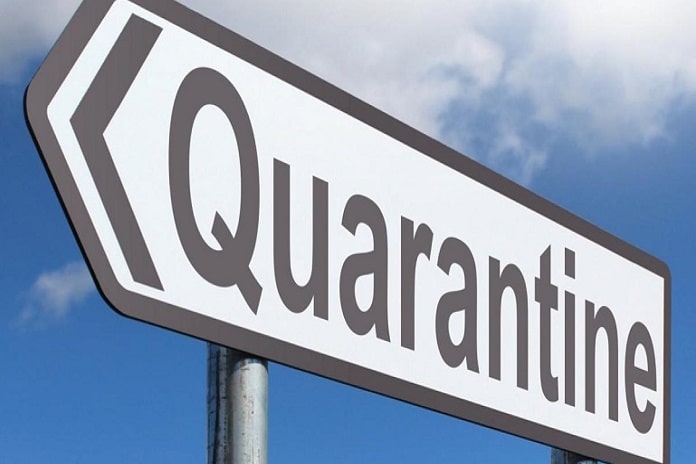According to new guidelines issued by the Indian Union Ministry for Health and Family Welfare, all international passengers arriving in India will have to undergo mandatory quarantine for a period of 14 days. During his recent social media address, civil aviation minister Hardeep Singh Puri hinted at the possibility of reopening international travel by July-August, this year.
Before boarding a ship or a flight, all travellers will have to give an undertaking for the quarantine. The period, however, would include seven days of paid institutional quarantine at their own expense, followed by seven days of isolation at home with self-monitoring health.
The ministry said, “For exceptional and compelling reasons such as cases of human distress, pregnancy, death in the family, serious illness and parents accompanied by children below ten years, as per assessment by the receiving states, home quarantine may be permitted for 14 days.
“For such cases, the use of the Aarogya Setu app has been made mandatory.”
All inbound travellers have been advised to download Aarogya Set app on their mobile devices.
At the time of boarding, only asymptomatic passengers will be allowed to board after the thermal screening.
The guidelines further said that those who will be arriving through land borders will also have to undergo the same protocol, and those who are asymptomatic will be allowed to cross the border into India.
Other requirements include, “A self-declaration form in duplicate shall be filled by the person in the flight or ship and a copy of the same will be given to health and immigration officials present at the port of entry. The form may also be made available on Aarogya Setu app.
“On arrival, the thermal screening will be carried out for all passengers by the health officials present at the airport, seaport or land port.
“The passengers found to be symptomatic during screening shall be immediately isolated and taken to a medical facility as per health protocol. The remaining passengers shall be taken to suitable institutional quarantine facilities, to be arranged by the respective state and union territory governments.”
Anyone who is found to be coronavirus positive will be assessed clinically. The guidelines said, “If the cases are mild, they will be allowed home isolation or isolated in the Covid care centre, both public and private facilities, as appropriate.
“Those having moderate or severe symptoms will be admitted to dedicated Covid Health facilities and managed accordingly.”











